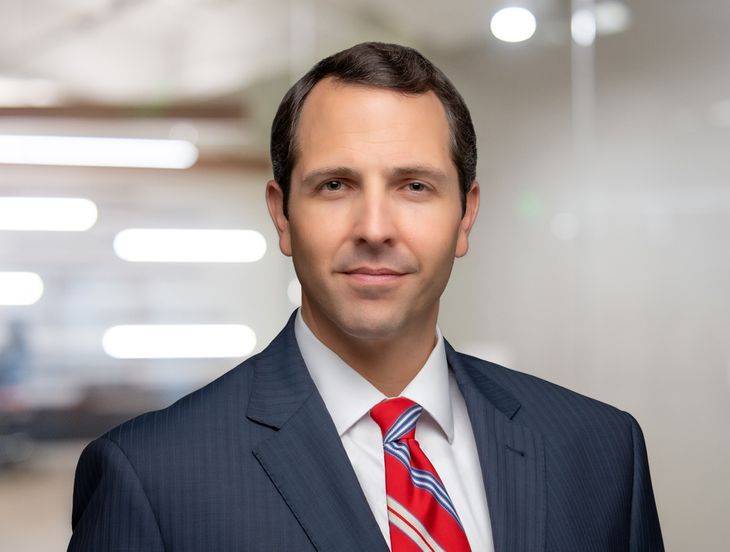Comprehensive FAQs For Employers on Hurricanes and Other Workplace Disasters: 2022 Edition
Insights
9.08.22
This detailed set of Frequently Asked Questions, fully updated for 2022, addresses the workplace-related issues facing employers in the wake of hurricane-related disasters. In addition to legal obligations you need to consider, this Insight also addresses the practical questions that most often arise both while preparing and in the aftermath of storms. The information contained here could be of value beyond the current hurricane season and may be helpful following any natural catastrophe. What are the most critical issues you need to be aware of during preparation and recovery?
TABLE OF CONTENTS
- WORKPLACE SAFETY ISSUES
- EMPLOYEE LEAVES
- PROVIDING ASSISTANCE TO NATURAL DISASTER VICTIMS
- WAGE AND HOUR ISSUES
- LAYOFFS AND BUSINESS CLOSING LAWS
- EMPLOYEE BENEFITS ISSUES
- LABOR RELATIONS
- PERSONAL INJURY LAWSUITS AND WORKERS’ COMPENSATION
- IMMIGRATION LAW
- WORKPLACE PRIVACY REQUIREMENTS
- UNEMPLOYMENT COMPENSATION
Will OSHA relax enforcement of its various workplace safety standards due to the massive disruption associated with a hurricane?
The Occupational Safety and Health Administration (OSHA) cannot tell employers to ignore or violate OSHA regulations or consensus standards, even in the face of such disruption. In the case of past hurricanes, tornados, and blizzards, OSHA mobilized its Compliance Officers and Industrial Hygienists to provide “compliance assistance” during the period of initial clean up and did not meaningfully focus on issuing citations. Of course, OSHA’s emphasis on assistance over enforcement does not mean you should take shortcuts on safety even in the face of such extreme need.
At what point in time are employees most vulnerable?
The greatest threats at most workplaces are presented during the clean-up phase and when restarting businesses. This is because employees are faced with unusual circumstances and are often performing different tasks than their usual jobs. Encourage your employees to think before they act. If their work will involve non-routine tasks, prior to employees performing work, you should conduct a Job Hazard Analysis (JHA) to determine the possible hazards and then provide training and personal protective equipment (PPE) to mitigate any hazards identified in the JHA. Finally, make sure you and your employees stay alert for hazards posed by fatigue. Advise your employees to avoid skipping meals and ensure they stay well hydrated.
Can an employee refuse to work because of hurricane-related safety concerns?
OSHA expressly instructs employees to approach their employer first when they believe that working conditions are unsafe or unhealthy. However, if the condition clearly presents a risk of death or serious physical harm and there is not sufficient time for OSHA to inspect, the worker may have a legal right to refuse to work in a situation in which they would be exposed to the hazard. Thus, employees are protected if they refuse to do a job and have a good faith belief they are exposed to imminent danger. In addition, employees may also be protected under the National Labor Relations Act as engaging in “concerted protected activity” where they indicate that their refusal to work or complaint is on behalf of other employees or about an issue of interest to other employees. Under these circumstances, an employer may have a right to “permanently replace” the employee, but discipline or discharge may be unlawful. If you have a situation where an employee is refusing to work because of hurricane-related dangers, check with your legal counsel before taking disciplinary action.
What are some of the hurricane-specific safety hazards we should keep in mind as clean-up begins?
OSHA fact sheets provide the following recommendations in hurricane-related situations:
- It is essential for you to conduct preliminary inspections of worksites for stability, electrical hazards, and flood risk before having employees perform work. Architectural and engineering guidance may also be necessary, as may be fire protection and trenching.
- Beware of the risk of heat exhaustion especially in the face of OSHA’s current National Emphasis Program on heat stress – provide sunscreen, frequent rest breaks, shade, and abundant potable water. Also ensure that workers who do not normally work in the heat are acclimatized to working conditions. These measures should be documented in a written heat illness prevention plan.
- Make toilet and hand-washing facilities readily available.
- Make sure you have first-aid kits available because of the increased risk of infection. Additional first aid and CPR training may be necessary.
- Even where specific chemical hazards are not apparent, waterproof boots or steel-toed shoes may be necessary. The same goes for gloves, long pants, and safety glasses. Sneakers and soft shoes should not be allowed during cleanup operations.
- Respirators should be provided when working in a moldy building or otherwise exposed to fungi, and employers must ensure that fit testing, medical evaluations, and other requirements in the respiratory standard are followed when requiring respirators to be worn
- Electrical hazards are especially an issue. You may need to provide Electric Work Practices training to recognize and avoid electrical hazards such as: overhead wires, fallen overhead power lines, falling overhead power lines while workers are in vehicles, the use of electrical equipment while standing in water, repairing electrical cords or equipment, and wet or damaged electrical equipment.
- Fire extinguishers and basic training may be required in new environments.
Are there any areas more likely than others to be cited by OSHA?
Every year, OSHA issues large numbers of Citations under the Hazard Communication, Scaffolding, PPE, and Fall Protection Standards, all of which may be implicated by recovery efforts. As examples, employees may be exposed to spilled chemicals or perform “non-routine tasks,” such as cleaning floors with bleach, which may necessitate obtaining new Safety Data Sheets (SDS) and providing additional Hazard Communication training. Similarly, gloves, dust masks, and respirators may temporarily be necessary, which may require documented JHAs, training, and compliance with the extensive requirements in OSHA’s respiratory protection standard.
Do I need to inoculate my employees for various illnesses?
After recent hurricanes, the CDC initially stated that Tetanus and Diphtheria inoculations may be necessary, as well as Hepatitis-B vaccine series for persons who will be performing direct patient care or otherwise expected to have contact with bodily fluids. The CDC has provided information on recommended immunizations for disaster responders.
As during the previous hurricane clean-ups, employers should be prepared to follow the guidelines of the Bloodborne Pathogen Standard in the event of exposure to water and waste material possibly containing blood or other potentially infectious material. The CDC recommends Hepatitis A vaccinations for many people living in affected areas, but not for responders. Individuals assisting with clean-up are encouraged to receive a dosage of Tetanus-Diphtheria Toxoid if they have not had a booster shot in 10 years. If contact with blood or other bodily fluids is anticipated, Hepatitis B vaccinations may also be appropriate.
Are there additional resources you would recommend reviewing?
- Employers should start with OSHA’s pages on Hurricane Preparedness and Response and Flood Preparedness and Response where you can access guidelines to specific work practices dangers likely associated with clean-up and recovery, including flooding, electrical, fall protection, personal protective equipment, chain saws, mold, bloodborne pathogens, bacterial issues, tree trimming, trenching, and heat exposure.
- All of the safety issues mentioned above are now overlaid with COVID-19 concerns and precautions. The CDC has issued additional guidance for natural disasters and COVID-19, found here.
- Employers should review best practices for complying with OSHA’s current National Emphasis Program on heat stress.
- Medical Recommendations for Relief Workers and Emergency Responders provides interim guidance on medical screening for workers before beginning disaster response activities.
- NIOSH Interim Post Exposure Medical Screening of Workers Leaving Hurricane Disaster Recovery Areas provides information on working in physically demanding, unclean, or unstable work environments, such as hurricane recovery areas.
Should we provide family and medical leave in hurricane-related situations?
Employees requesting time away from work could conceivably be protected by the Family and Medical Leave Act (FMLA), or state and local laws, to the extent they develop a serious health condition or need to care for a family member with such a condition, and otherwise meet eligibility requirements. Even in the absence of such protection, your internal policies may extend protection to such individuals. Of course, there is nothing to prevent you from voluntarily providing an employee with leave in the absence of any legal obligation.
One of my employees was already on FMLA leave at the time we had to suspend operations. How should we handle the leave now?
Although certain states may impose greater obligations than federal law, none of the eight states most commonly impacted by hurricanes – Alabama, Florida, Georgia, Louisiana, Mississippi, North Carolina, South Carolina, and Texas – have any such laws. This means that FMLA will govern leave obligations in these areas for employees of private businesses.
Federal law makes clear that employees on qualified FMLA leave are entitled to no greater rights, benefits, or protections than they had before taking leave. While FMLA regulations provide little guidance with respect to your obligations in the context of a natural disaster, they do make clear that if an employee is legitimately laid off during the course of FMLA leave, then your responsibility to continue leave, maintain health benefits, or even restore the employee may cease at that time absent any conflicting obligations pursuant to a collective bargaining agreement, employee handbook, or otherwise. By analogy, the same should hold true for an employee whose work assignment has been suspended due to any other intervening event, including a natural disaster such as a hurricane.
Nonetheless, it is the employer’s burden to show that the employee would have been laid off (or terminated for lack of work) during the FMLA leave period, and therefore not entitled to job restoration. If the employees establish that they would instead have been reinstated, reassigned, transferred, or permitted to telecommute had they not taken FMLA leave, then their benefits continue until exhausted. FMLA regulations further state that any period in which business activities have been suspended and employees are not otherwise expected to report for duty cannot be counted against the employee’s 12-week FMLA entitlement.
The best approach is to treat employees as you would any other employee in their job classifications. If a similarly situated co-worker is permitted to telecommute or transfer to another location, then benefits for the FMLA-qualifying employee should be continued until the 12-week leave entitlement has been exhausted. At that point your existing leave policies would dictate any continuing obligations. In certain situations, as evaluated on a case-by-case basis, additional unpaid leave may also be available to disabled employees as a form of reasonable accommodation under the Americans with Disabilities Act (ADA).
A number of our employees have been called upon to serve as relief workers to help with the hurricane devastation. Do laws such as USERRA protect them as they would National Guard members, reservists, and other members of the uniformed services?
Probably, yes. The Uniformed Services Employment and Reemployment Rights Act of 1994 (USERRA) is a broad pro-employee statute, significantly restricting the treatment of employees who perform services protected by the statute. It provides three major categories of employer obligations:
- Prohibition against discrimination: Under the Act, a person cannot be denied initial employment, reemployment, retention, promotion, or any benefit on the basis their membership, application for service, or obligation for service in the armed forces;
- Continuation of benefits while on leave: USERRA also requires employers to provide eligible employees with up to five years of unpaid leave during the life of their employment. Throughout this period, the employee’s seniority, health care, and pension benefits must be maintained; and
- Right to reemployment: Returning service members have a virtually unfettered right to reemployment by their pre-service employers upon timely application for return to work.
Alabama, Florida, Georgia, Louisiana, Mississippi, South Carolina, and Texas all have state laws patterned after USERRA that contain specific requirements for military personnel. North Carolina law also provides protections for members of the military and national guard who must take leave from work to serve during a natural disaster.
What categories of workers might be protected by USERRA?
In addition to military personnel called up to serve in the federal response to the hurricane disasters, the Bioterrorism Preparedness and Response Act extended USERRA’s protections to certain emergency workers dispatched to assist with national disasters, including those employees performing as intermittent disaster response appointees upon activation of the National Disaster Medical System (NDMS), even if they are not otherwise members of the uniformed services. NDMS programs include DMAT (Disaster Medical Assistance Team), DMORT (Disaster Mortuary Operational Response Team), VMAT (Veterinary Medical Assistance Team), NPRT (National Pharmacy Response Team), and NNRT (National Nurse Response Team). Members of the commissioned corps of the Public Health Service (PHS) also qualify for USERRA protection, as would any other category of persons designated by the President as “uniformed services” at times of national emergency.
How do I know if my employees are covered?
To establish USERRA eligibility, an employee must meet the following conditions:
- hold a civilian job and have a reasonable expectation that employment will continue indefinitely;
- provide advance written or verbal notice that they intend to leave for service (or training, in some cases) with NDMS or another qualifying program. In cases of emergency necessity, as well as circumstances where it is unreasonable to provide notice, failure to do so is excused;
- engage in service that does not exceed the five-year cumulative limit of time to be released honorably from NDMS (or another qualifying federal program); and
- subsequently submit a timely application for re-employment or report back for work in a timely fashion.
To the extent that employees are unable to meet these criteria, they would not qualify for USERRA protection. USERRA covers both voluntary and involuntary service. If an employee volunteers for service and is placed on orders activating them for service, then the service is covered under USERRA even though the employee volunteered. If an employee volunteers to serve with the relief effort but is not ordered to active service under any of the federal programs described above, they do not qualify for USERRA protection.
How long after they finish working for NDMS do employees have to return to us?
If an employee works for NDMS for a period of 30 consecutive days, they must return to work on the first full regularly scheduled workday occurring after they have had safe transportation home plus an eight-hour rest period. If it is impossible or unreasonable for the employee to return to work within this time frame through no fault of their own, then they must return back to work as soon as possible following the eight-hour rest period.
Are employees who participate in NDMS eligible for health care coverage and continuation?
Yes. NDMS employees have the same USERRA right to elect continued health care coverage as military personnel do. NDMS employees also have the right to immediately reinstate health insurance coverage upon their return to work.
One of our employees advised us that they wanted to volunteer with the hurricane relief effort and has since been absent from work. What are our obligations with regard to this employee?
If the employee does not qualify for federal USERRA protection or a state or local military leave law, then you are not obligated to provide such protection. Nevertheless, they may be eligible for FMLA or state law leave or leave under one of your other policies – check your policies and inquire with the employee before taking action.
3. PROVIDING ASSISTANCE TO NATURAL DISASTER VICTIMS
Our employees have lost homes and need assistance. Is there anything we can do to provide them assistance?
Yes, there are at least four ways in which you can assist.
- Loans and Hardship Distributions: The IRS has, in the past, announced liberalized procedures for loans and hardship distributions to victims of hurricanes. These procedures allow faster and more liberalized access to hardship distributions for individuals working or residing in counties effected by the disaster (as identified by FEMA). A detailed description of the relief granted by the IRS in the past is available here.
- Amended 401(k) Plans: Pursuant to 2019 IRS regulations, employers can amend their 401(k) plans to provide hardship distributions for expenses and losses (including loss of income) incurred by employees on account of a disaster declared by FEMA under the Robert T. Stafford Disaster Relief and Emergency Assistance Act. In order to qualify for this benefit, an employee’s principal residence or principal place of employment at the time of the disaster needs to have been located in an area designated by FEMA for individual assistance with respect to the disaster. This allows employees to take hardship distributions for federally declared disasters without waiting for the IRS to announce applicable relief.
- Leave-Sharing Programs: Employers can also set up a leave-sharing program to allow employees to donate their accrued, unused paid time off or leave to a pool that can be used by affected employees. Donation of leave programs must be carefully structured in compliance with existing guidance to ensure that the employee donating their leave is not taxed on the leave that they thought they had given to others.
- Charitable Foundations: Employers wanting to create a long-term assistance program for employees impacted by natural disasters and other hardships may also consider establishing a 501(c)(3) foundation, as described below.
Is it possible for us to create a charitable trust through which employees can make tax-deductible contributions to assist other employees who suffered losses in the storm?
Yes, it is now possible for an employer to establish a 501(c)(3) private foundation for the sole purpose of providing disaster relief assistance to the employer’s employees and their families (an “Employer-Controlled Foundation”). Once you establish this fund, all contributions are tax-deductible to the donors and all distributions are income tax-free to the recipients.
How can we create such an Employer-Controlled Foundation?
In order to avoid IRS concerns regarding private inurement, there are very specific requirements that you must follow to preserve the tax advantages:
- You must take all appropriate steps to establish an official 501(c)(3) charitable organization, which normally requires creation of a not-for-profit entity and the filing of certain tax forms (both initially and on an ongoing basis);
- The class of disaster relief recipients must be “large or indefinite”;
- You must select disaster relief recipients based upon “an objective determination of need” (e.g., disaster relief distributions must be purely needs-based, and may not be based upon factors such as the recipient’s position or seniority with the employer);
- The selection of disaster relief recipients and the determination of need must be made by either (i) an independent committee of the Employer-Controlled Foundation, “a majority of the members of which are persons other than persons who are in a position to exercise substantial influence over the affairs of the controlling employer” or (ii) “other procedures and standards” that are “adequate substitutes to ensure that any benefit to the employer is incidental and tenuous”; and
- Disaster relief distributions may not be made to, or for the benefit of, a “disqualified person” with respect to the employer (generally, “any person who was, at any time during the five-year period ending on the date of such transaction, in a position to exercise substantial influence over the affairs of the organization” and members of such a person’s family) or a member of the independent committee referred to in Paragraph 4 above.
Most of these requirements exist to ensure that an Employer-Controlled Foundation has a purely charitable purpose, and is not simply an additional employee benefit offered by the employer. If any of these requirements are not satisfied, there is a risk that contributions for disaster relief assistance will not be tax-deductible to the donors.
Must we keep paying employees who are not working?
Under the Fair Labor Standards Act (FLSA), for the most part the answer is “no.” FLSA minimum-wage and overtime requirements attach to hours worked in a workweek, so employees who are not working are typically not entitled to the wages. However, some key differences apply to salaried employees.
- First, employees treated as exempt under one of the FLSA’s “white collar” exemptions are required to be paid on a salary basis. Generally speaking, if such an employee does any work during the employer’s designated seven-day workweek, the salary basis rules require that they be paid the entire salary for that particular workweek. There are limited exceptions, such as might be the case when the employer is open for business but the employee decides to take off a full day for personal reasons and performs no work.
- Second, non-exempt employees paid on a “fluctuating-workweek” basis under the FLSA normally must be paid their full fluctuating-workweek salaries for every workweek in which they perform any work. There are a few exceptions, but these are even more limited than those for exempt “salary basis” employees.
Of course, you might have a legal obligation to keep paying employees under the terms of an employment contract, a collective bargaining agreement, or some policy or practice that is enforceable as a contract. It is also essential to evaluate wage payment obligations under state wage law.
Can we charge time missed to vacation and leave balances?
The FLSA generally does not regulate the accumulation and use of vacation and leave. The salary requirements for exempt “white collar” employees can implicate time-off allotments under various circumstances. Again, however, what an employer may, must, or cannot do where paid leave is concerned might be affected by an employment contract, a collective bargaining agreement, or some policy or practice that is enforceable as a contract or under a state or local wage law (where there are an increasing number of paid leave requirements). You should also consider the employee morale aspect of taking such a step.
As we recover, must we keep paying overtime on top of our other burdens?
There is no “emergency” exception to the Fair Labor Standards Act (FLSA) that relieves you from your obligation to pay legally required wages. Employees subject to the FLSA’s overtime provision must be paid overtime at a rate of at least 1.5 times their regular rates of pay for all hours worked over 40 in the designated seven-day workweek(s).
Employees covered by a collective bargaining agreement or some other contract or enforceable understanding might be due more than the FLSA requires. Perhaps the terms of that agreement or understanding relax those requirements in emergencies. However, no such “agreement” can override the FLSA’s requirements.
Can an employee volunteer to perform recovery services for us without pay?
The FLSA does not permit employees to “volunteer” work to their for-profit private sector employer. There are limited exceptions where such employees can volunteer for events sponsored by their employer. Employers considering any kind of unpaid volunteer services by their employees should carefully evaluate the legality of permitting this.
What do we do about lost time records for work already performed but not yet paid?
If the only records of hours worked are lost or unusable, then there is no perfect solution. Recreate the most-accurate accounting you can under the circumstances. Then have affected employee review, correct, and confirm the recreated time records. Another approach is to have each employee make the best-possible estimate of their hours worked. You should obtain the employee’s written acknowledgement of their best recollection and should include the employee’s authorization allowing later corrections in worktime and pay should more accurate hours-worked information become available. Do not wait to receive this information if you can reasonably reconstruct the time worked and under most state laws, employees must be paid promptly for time worked.
How do we record employees’ worktime without our electronic time clocks?
Employees may record all hours worked by using handwritten timesheets or by other means. To ensure accuracy, each employee should enter their own time and should record the actual times when their work starts and stops each workday, preferably including lunch and other breaks.
5. LAYOFFS AND BUSINESS CLOSING LAWS
Do we have any legal liability if we are forced to suspend operations without prior notice because of the storm and its aftermath?
Probably not, so long as you take steps to issue appropriate notice as soon as practicable. The federal Worker Adjustment and Retraining Notification (WARN) Act imposes a notice obligation on covered employers (those with 100 or more full-time employees) who implement a “plant closing” or “mass layoff” in certain situations, even when they are forced to do so because of a natural disaster or unforeseeable business circumstance. It is important to keep in mind that these quoted terms are defined extensively under WARN’s regulations, and that they are not intended to cover every single layoff or plant closing. There may be state laws that require notice as well.
What does the WARN Act require in cases of natural disaster?
Generally speaking, covered employers must provide at least 60 calendar days of notice prior to any covered plant closing or mass layoff. Fortunately, even in cases where its notice requirements would otherwise apply, the WARN Act provides a specific exception “if the plant closing or mass layoff is due to any form of natural disaster.” This provision would clearly apply to hurricanes. To qualify for the exception, you must be able to show that the plant closing or mass layoff was a direct result of the natural disaster and you must provide notice as soon as practicable given the circumstances, along with a statement explaining the failure to provide the full 60-day notice, which in this case would obviously be tied to the unforeseeable nature of the hurricane and its aftermath.
Any WARN notice to affected employees must contain, at a minimum, the following information: 1) whether the planned action is expected to be permanent or temporary, and if a plant is being closed, a statement to that effect; 2) the expected date the plant closing or mass layoff will commence, as well as the anticipated date of each employee’s layoff or termination (or a 14-day window when each employee’s layoff or termination will occur); 3) an indication as to whether bumping rights exist; and 4) the name and phone number of a company official who can be reached for further information. For employees residing in the immediate path of the hurricane, any attempt to notify them will be difficult at best, but the law suggests that notice may be effectuated through written correspondence to their last known address. Of course, many of these facts may not yet be known, in which case the Department of Labor takes the position that “notice need only contain such information as is available at the time the notice is given.”
What if our business was indirectly impacted by the hurricane?
Businesses that are indirectly impacted may still benefit from the “unforeseeable business circumstances” exception. This exception is limited in that an employer relying upon it must still provide “as much notice as is practicable, and at that time shall give a brief statement of the basis for reducing the notification period.” In other words, once you are in a position to evaluate the immediate impact of the disaster upon your workforce, you must then provide specific notice to “affected employees” and certain government agencies, along with a statement explaining the failure to provide the full 60-day notice, which in this case would obviously be tied to the unforeseeable nature of the hurricane and its aftermath.
What if my workforce is unionized?
In the case of bargaining unit employees, notice is far simpler, though you may also have a duty to bargain under the NLRA over the effects of the layoffs or terminations. You only need to send the union representative (we recommend sending notice to the local and international union representatives) the following information:
- the name and address of the work site where the planned action will occur, and the name and phone number of a company official to be contacted for further information;
- whether the planned action is expected to be permanent or temporary and, if a plant is to be closed, a statement to that effect;
- the expected date of first separation and anticipated schedule of layoffs (including the date or 14-day window during which each employee will be laid off or terminated); and
- the job titles to be affected and names of workers currently holding those positions.
Do I need to send notice to government entities?
Whether your employees are unionized or not, notice must also be delivered to the state dislocated worker unit, and to the chief elected official of the local municipality in which the affected facility resides (we recommend sending notice to the city and county officials). Both notices must contain the following information:
- the name and address of the work site where the planned action will occur, and the name and phone number for a company official to be contacted for further information;
- whether the planned action is expected to be permanent or temporary, and, if a plant is to be closed, a statement to that effect;
- the expected date of first separation and anticipated schedule of layoffs (including the date or 14-day window during which each employee will be laid off or terminated);
- the job titles of positions to be affected and names of workers currently holding those positions; and
- the name of each union representing affected employees and the name and address of the union’s chief elected officer.
Will the government really enforce this law in light of the catastrophe?
In the aftermath of hurricanes, the extent to which the Department of Labor will focus upon enforcement of the WARN Act is always uncertain. Nonetheless, the law provides stiff penalties for non-compliance, including up to 60 days of back pay and benefits, along with a civil penalty of up to $500 per day. More importantly, it provides for a private cause of action in federal court, suggesting that employers may face lawsuits arising under the WARN Act regardless of the enforcing agency's official position.
Consequently, we advise that you evaluate your current situation to ascertain whether the most recent disaster has triggered a WARN Act qualifying event in your organization. If so, provide as much notice to affected employees as is practicable under the circumstances. When in doubt, the best approach is to work through counsel to arrive at a safe but practical solution to a potentially thorny situation for many employers that are impacted by the disaster, either directly or indirectly.
Contributions to our pension plan and 401(k) are due in the next few weeks. Because of the hurricane, we either can't make the contribution or can't determine how much is owed. What can we do?
Following a presidential declaration of a major disaster for the portions of one or more states, the IRS, USDOL, and Pension Benefit Guaranty Corporation (PBGC) routinely issue releases providing for extension of various deadlines for employee pension and welfare benefit plans for victims of the disaster in the affected states. For example, the USDOL has in the past issued statements that it will not seek to enforce ERISA violations for late contributions to retirement plans or deposit of employee contributions (including loan repayments) for plans, plan sponsors, and employers who are located in a county identified for individual assistance by FEMA due to the effects of major hurricanes. But to be eligible for the relief, plan sponsors must act reasonably, prudently, and in the interest of employees to comply as soon as practical under the circumstances. Detailed descriptions of the disaster areas and the relief granted are available on the IRS and USDOL websites.
Our 401(k) record-keeper or bank trustee is not operating. How do employees access their accounts? Where do we make contributions to the plan?
You are under a legal requirement to submit funds to the record keeper/trustee as soon as reasonably possible, and no later than the 15th of the month following the payroll. If the record-keeper is not operating, you should take reasonable steps to segregate the funds in a separate account for the participants to address this problem. However, as indicated above, the USDOL has in the past indicated that it will not seek to enforce violations of ERISA for late deposit of employee contributions to a retirement plan given certain hurricane conditions.
What if we can’t meet our payroll tax deposits or file our Form 5500 on time because of the hurricane?
In the past, the IRS has issued relief extending the deadline for filing the Form 5500 Annual Return/Report for employee benefit plans and granting an extension of certain filing deadlines for businesses and individuals located in one of the counties affected by a major hurricane.
If our employees are no longer working, are they still entitled to health insurance coverage?
Not necessarily. You need to check your plan document (if self-insured) or call the insurance company (if fully insured) to determine how long employees who are not actively working may remain covered by your health plan. Once this period expires, you must terminate insurance coverage (unless the insurance company or self-insured plan otherwise agrees to waive its eligibility provisions) and send a COBRA notice (see below). If your plan is self-insured and if you decide to waive plan eligibility provisions, you must make sure stop-loss insurers are notified and agree to cover claims relating to participants who would otherwise be ineligible for coverage.
What happens to health coverage if employees are not working and unable to pay their share of premiums?
In the normal course of events, health coverage will cease when premium amounts are no longer paid. However, several actions might be taken that would allow coverage to continue.
First, the insurer providing the health coverage may voluntarily continue the coverage while the disaster is sorted out and the employer reopens its doors. More likely, you may make an arrangement with the insurer providing health coverage to pay the employees’ portion of premiums to keep coverage in place (at least temporarily) and possibly until you can reopen your doors. Each situation will be different, however, depending upon the insurer and the relationship between the employer and the insurer.
The physician network we use is not functioning. How do our employees get health services?
There are several things you can do. First, check with your HMO or insurer to determine if the organization has designated replacements for the providers which are not functioning. In many cases, you may be able to substitute out-of-network providers without employees incurring additional costs. A number of insurers may be willing to waive out-of-network penalties, deductibles, or co-pays, and in certain cases, may be willing to waive plan restrictions such as limitations on prescription refills. For example, in response to one past severe hurricane, all pharmacists in Texas were granted temporary authority to dispense up to a 30-day supply of medication (other than a Schedule II controlled substance) even if the prescriber could not be reached, based on their discretion. Additionally, some healthcare providers have allowed patients to refill medications early.
If you have a PPO which is lacking critical specialties or providers, contact the PPO provider or administrator to see if they have found replacements or to make sure they are willing to waive any exclusivity agreements that might exist. If you have employees or dependents who need critical prescriptions that cannot be filled in your area, contact the drug manufacturer. Many manufacturers are providing free drugs to those in need. You can also contact FEMA at 1-800-621-3362 (or 202-621-3362) to see what critical medical services are present in your area, and how providers can be contacted.
We need to send COBRA notices to former employees, but we don't know where they are or if their homes have been destroyed. What do we do?
In many cases, COBRA requires mailing of notices and election forms to a last-known address. To fulfill this legal requirement, you should send COBRA notices to your employee’s last known address, assuming that they have not called to report new addresses. This effort should be made even if you know that mail is not being delivered, and you should keep records to establish this process. Daily updates are made to the U.S. Postal Services website regarding mail acceptance and delivery to the affected areas.
Additionally, beginning in 2020, the USDOL issued temporary relief for furnishing COBRA notices and other ERISA-required disclosures. Although the relief was provided in response to the COVID-19 pandemic, the relief is not limited to delays caused by COVID-19. The relief will continue until 60 days after the announced end of the national emergency caused by the COVID-19 pandemic. However, employers are still required to act in good faith and furnish the notice as soon as administratively practicable under the circumstances.
We haven't received a COBRA payment from a former employee. What do we do?
Special rules enacted in response to the COVID-19 pandemic now govern how missed COBRA premiums can be treated. These rules apply effective March 20, 2020, and extend until 60 days after the announced end of the COVID-19 National Emergency (the “Outbreak Period”). Employers cannot terminate an employee’s COBRA coverage for failure to timely make premium payments until the earlier of (i) one year from the date relief was first available to the participant (for example, the individual’s original payment due date) or (ii) 60 days after the announced end of the COVID-19 national emergency. Although the rule issued by the IRS and DOL providing this relief was in response to the pandemic, the relief is not limited to failures to pay COBRA premiums caused by COVID-19. The timeframes for individuals to make initial premium payments (typically 45 days) and ongoing premium payments (typically 30 days) for COBRA coverage are both suspended during this time.
Regardless of the temporary suspension provided during the Outbreak Period, you must provide a 30-day grace period for COBRA payments from former employees and their dependents. You may provide a longer grace period if you choose. It is important to frequently check with the USDOL and IRS for notices regarding applicable COBRA notice periods.
Once the Outbreak Period is over, we recommend sending a letter to the last-known address of the COBRA participant reminding them that a premium payment is missing and that COBRA coverage will be terminated if not received shortly. The new COBRA rules require that you send a notice of termination to the last-known address of the participant if you terminate the coverage for nonpayment of premiums.
According the USDOL, the guiding principle for plans must be to act reasonably, prudently, and in the interest of the workers and their families who rely on their health plans for their physical and economic well-being. In response to past severe hurricanes, the USDOL stated that plan fiduciaries should make reasonable accommodations to prevent the loss of benefits for failure to pay or timely respond to an election notice, for example. This is to minimize the possibility of individuals losing benefits because of a failure to comply with pre-established timeframes due to the hurricane. However, any extensions of grace periods or waivers of COBRA deadlines must be cleared with your insurer or stop loss carrier.
We've told employees to send COBRA payments to an address that no longer exists or no longer receives mail. What do we do?
Go to the post office and fill out a business forwarding card or go to www.usps.com and change your address online. In light of this, you may want to extend grace periods to ensure coverage is not lost. However, any extensions of grace periods or waivers of COBRA deadlines beyond those provided during the COVID-19 Outbreak Period must be cleared with your insurer or stop loss carrier.
Our workforce is unionized. Can we unilaterally change work schedules or duties for bargaining unit employees in response to the hurricane?
The National Labor Relations Act (NLRA) imposes on employers the duty to bargain in good faith over mandatory subjects of bargaining such as wages, hours, and terms and conditions of employment. Generally speaking, employers that unilaterally change these items are subject to unfair labor practice charges even in emergency situations, unless their collective bargaining agreements provide otherwise. Many contracts do provide for employer flexibility in determining work assignments, scheduling, and layoffs. The first authority for determining your rights and obligations is the language within your own collective bargaining agreement.
We have a “force majeure” clause in our contract. Does it cover the damage caused by the hurricanes?
Possibly. A “force majeure” clause is a contractual provision that sets out your rights and obligations in the event of an emergency situation created by an unforeseeable force of nature (or the like). Whether a hurricane triggers the force majeure clause and what effect that clause has on other contract provisions will vary significantly depending on the nature of the employer and the natural disaster at issue.
There is no force majeure clause in our collective bargaining agreement. Does that mean we still have to abide by all contract provisions during the crisis?
The general duty to bargain over changes in contractual terms may be suspended where compelling economic exigencies compel prompt action. The law views “compelling economic exigencies” as extraordinary, unforeseen events having a major economic effect requiring the employer to take immediate action through unilateral change.
Although a hurricane would seem to fit the description of a “compelling economic exigency,” its effect will likely differ from one employer to the next. Consequently, while a severe storm may suspend the duty to bargain for one employer whose only facility was completely destroyed, it may not suspend that duty for an employer that has lost significant accounts or contracts as a result. In practice, the safest course of action (and the one most likely to avoid future litigation) is to notify the union in all cases, even if you believe that your particular situation fits into the “compelling economic exigency” category.
How much notice do we have to give the union before making a change to our contract?
The law requires employers to give the union “adequate” notice of a proposed change to the collective bargaining agreement, so as to engage in meaningful bargaining over that change on request. There is no hard and fast rule as to how much notice is adequate. But where an employer can show a need for a prompt change and time is otherwise of the essence, a notice period as short as a couple of days might be considered adequate under the circumstances.
Due to damage caused by the hurricane, our company must go out of business. Do we have to notify the union before we do this?
An employer has the right to cease operations and go completely out of business without first bargaining with the union over its decision. But an employer that decides to close its operation must nonetheless furnish the union with adequate notice of its decision, and bargain over the effects of that decision if the union requests bargaining.
If we decide to close my business as a result of a hurricane, how much notice do we have to give to the union?
You are required to give the union sufficient notice to allow for meaningful bargaining over the effects of your decision upon request. There is no bright line test for determining how much notice is sufficient, and depending on the circumstances, as little as a couple of days may be deemed sufficient. Remember that you are still be subject to applicable state and federal laws with respect to plant closure notifications, as discussed in more detail above.
What is our bargaining obligation after we’ve notified the union of our decision to close?
Once the decision has been made to close a business and the union has been adequately notified, you are required to bargain over the effects of the closure on employees upon union request. By way of example, these “effects” can include: severance payments, letters of recommendation, transfer rights, vacation payouts, continuation of health insurance benefits, and similar topics. Remember that your collective bargaining agreement may already provide for the continuation of some of these benefits in a plant closure situation.
What happens if we close the business altogether and then reopen a brand-new facility elsewhere? Do we still have to bargain with the union?
Reopening the same or similar business at a later date could result in a duty to bargain with the new employees (if, for example, a company intentionally uses a business shutdown to avoid its bargaining obligations). The law may impose a bargaining obligation on the new employer on the theory that it is the “alter ego” of the previous employer, or if together they constitute a “single employer.”
While union avoidance is likely not the motivation of an employer that decides to close its operation due to hurricane damage, the result could be the same. If the subsequent employer has the same or similar ownership, management, business objective, customers, and supervision, the law could impose a renewed duty to bargain with the incumbent union – and even require the new company to follow the terms of the prior collective bargaining agreement. Many contracts have specific provisions covering situations in which the employer relocates its business. In that case, the provisions of the collective bargaining agreement would prevail.
We would like to move the work that used to be done at our hurricane-stricken facility to one of our other facilities. Do we have to bargain with the union about that?
An employer may have the right to close part of its business and transfer work elsewhere without bargaining over that decision under narrow circumstances as summarized below. Such decisions must be based on a legitimate economic justification (rather than on a desire to replace union employees with non-union employees), however, and should generally be guided by advice of counsel given the severity of potential remedial relief.
As with a complete shutdown, an employer that decides to close part of its operation and transfer work elsewhere must give sufficient notice to allow for meaningful bargaining over at least the effects of that decision upon request. Following proper notice, the union has the right to demand that the company bargain over the effects of the decision to close a facility and transfer the work. Effects bargaining may include discussions over topics such as severance pay, continuation of benefits, and the right to fill jobs at the new location. Under certain limited circumstances (such as where labor costs are neither a direct nor indirect factor in the work relocation decision), the employer may be able to avoid a duty to bargain over the underlying decision itself. Note also that your collective bargaining agreement may directly address a plant closure or transfer of work situation.
8. PERSONAL INJURY LAWSUITS AND WORKERS’ COMPENSATION
My employees have physical and psychological injuries from exposure to dangerous substances and the trauma of dealing with the hurricane aftermath at work. Will they be able to sue the company for damages in court?
Generally, under state law, your employees will be limited to workers’ compensation remedies if they are injured as a result of an accident occurring in the course and scope of their job duties. If their injuries result from deliberate or intentional (rather than accidental) conduct, however, they will likely have the right to sue you in court for all of their actual losses (compensatory damages), including mental distress damages and punitive damages. Beyond this, there are significant differences in the laws of the states that were affected by the hurricanes.
- Alabama:Employees who are seeking to recover for psychological injuries (not physical injuries) are allowed to file separate lawsuits outside of workers’ compensation against their employers. In such suits, they can recover for mental distress and punitive damages.
- Florida:Workers’ compensation law is the exclusive remedy unless the act triggering injury was “virtually certain” to cause injury. In addition, the exclusive coverage of workers’ compensation for unintentional acts applies to injuries that are either physical or psychological. Accordingly, an employee is limited to workers’ compensation remedies for injuries, whether physical or psychological, that result from conduct which is less than intentional or deliberate.
- Georgia: Employees are limited to damages available under the state workers’ compensation law, and they cannot sue their employer outside of that system for punitive or other damages.
- Louisiana: An employee who has suffered emotional distress without any physical injury and which did not occur as the result of “sudden, unexpected, and extraordinary stress related to the employment” may be able to sue their employer in court for actual damages.
- Mississippi:The scope of the workers’ compensation laws is broad enough to cover not only negligent (accidental or careless) behavior, but also reckless or grossly negligent conduct. Thus, it is likely that employees injured as a result of conduct which is not the result of a deliberate act will be limited to receiving only workers’ compensation benefits.
- North Carolina: The only exception to the exclusivity provision of the North Carolina Workers’ Compensation Act is an exception for intentional misconduct by an employer, which is a narrow exception and is ultimately tantamount to an intentional tort and has only been applied in the most egregious cases.
- South Carolina: An employer may be held liable for some reckless or intentional action on the part of the employer. One may bypass the workers’ compensation system and sue their employer in court for a full range of damages, including punitive damages, pain and suffering, and mental anguish under certain circumstances.
- Texas:Workers’ compensation is the exclusive remedy for acts which are negligent, or even “willfully negligent,” as the Texas courts have defined the term. Thus, an injured Texas employee subject to workers’ compensation laws is generally limited to workers’ compensation remedies, except in obvious cases of intentional acts (e.g., a direct and willful assault on the employee by the employer). Texas employers may opt out of the state workers’ compensation scheme by posting an appropriate bond. Those who do opt out are not protected from damages suits even in cases in which workers are injured on the job through pure negligence. Injured workers must file injury reports within 30 days of the injury.
How can my company avoid being sued for workplace injuries in court?
Use reasonable care in making and supervising any job assignments where employees are going to be exposed to extremely unpleasant or potentially dangerous or shocking circumstances. Plan such work carefully to protect your employees from any physical danger or psychologically shocking circumstances which you can possibly anticipate in the course of their duties. Give employees who do agree to perform such duties any and all protective clothing and equipment necessary for safety or reasonably desirable in the circumstances. The more “careless” or “reckless” your actions appear to be in assigning or supervising such work, the more likely it is that a court in any state will allow an employee to sue for damages in court, rather than be limited to workers’ compensation recovery.
Should I ask for volunteers when assigning unpleasant or potentially dangerous duties?
Yes, we recommend that employers ask for volunteers to perform such duties when they are required. Warn volunteers in detail about any dangerous or unpleasant circumstances they can expect, and require them to execute full releases, approved by counsel in advance, from any liability which may result from their decision to participate. Any employee who is unwilling to sign a release should be assigned to other duties.
How do we complete I-9 forms for persons who are displaced and have no documents?
In the past, the Department of Homeland Security (DHS) has provided guidance regarding I-9 documents for hiring individuals who are displaced as a result of a hurricane and its aftermath. DHS may extend the relaxed I-9 procedures that were introduced during COVID-19 based on its proposed new rule to authorize changes to the I-9 process in the future. Further, the “Receipt Rule” allows individuals to provide a receipt for replacement documents instead of original work authorization documents for a 90-day period in situations where the documents are damaged or lost, after which time the original replacement document must be presented.
What happens to employees on temporary visas who cannot work?
Pending specific guidance from DHS, these workers would presumably be treated as if they were on an approved, unpaid leave. Therefore, they would not be out-of-status for failing to work during the period of emergency.
Must we pay an H-1B worker the salary listed in the petition even if that person cannot now work?
If you reduce pay or hours – or even change the worksite location – for an H-1B worker, you may need to amend your H-1B visa application. In the past, DHS has instructed its officers to use discretion in adjudicating cases involving failures to maintain lawful status where such failure was related to a hurricane, so you may have some leeway. Work with your immigration counsel in any such situation.
What happens if we miss an immigration-related application or response deadline?
In the past, DHS has allowed individuals to apply for changes of status or extensions of status, even after the expiration of their statuses, where the delay is due the hurricane. Likewise, both DHS and the USDOL have previously extended deadlines and not issued denials based on abandonment prior to the expiration of the extended deadline. USCIS has already extended COVID-19-related flexibilities through October 23, 2022 to assist employers. Under these flexibilities, USCIS considers a response received within 60 calendar days after the due date set forth in the request before taking any action, if the request or notice was issued between March 1, 2020 and October 23, 2022.
What happens to cases that were pending in Citizenship and Immigration Services Offices in the affected areas?
Pending damage assessment, you can assume all cases that were pending in affected offices will need to be re-filed. This may cause substantial delays for work permits, travel documents, and permanent residence interviews. USCIS prepares for hurricanes and tropical storms by temporarily closing offices, if necessary, in the projected path of any storm. If an office is closed, or if individuals are evacuated from their homes, USCIS will automatically reschedule all appointments until a time when it is safe to resume operations. Individuals may make an InfoPass appointment in another USCIS office by calling the USCIS contact center.
10. WORKPLACE PRIVACY REQUIREMENTS
What are our obligations if we are contacted by safety officials asking for emergency personal health information about one of our employees?
You may be asked to share protected health information with providers to help in treatment, or with emergency relief workers to help coordinate services. Unless you are a medical provider or employer-sponsored group health plan, you are not subject to the privacy restrictions of the Health Insurance Portability and Accountability Act (HIPAA). Nevertheless, you should only make disclosures to authorized personnel such as government officials acting in their official capacity, healthcare providers, or officially chartered organizations such as the Red Cross.
Even if you are not subject to HIPAA requirements, we recommend you treat all medical information as confidential and afford it the same protections as those granted by HIPAA. If at all possible, you should get the individual’s written or verbal permission to disclose their information before doing so. If they are incapacitated or cannot be located, you can share information if doing so would be in the person’s best interests. You can always disclose information to authorized personnel without permission if necessary to prevent or lessen a serious and imminent threat to the health and safety of a person or the public. Finally, you can share information with organizations like the Red Cross (which is authorized by law to assist in disaster relief efforts) even without a person’s permission if providing the information is necessary for the relief organization to respond to an emergency.
How can we or our employees get information about unemployment benefits?
You should seek out information about unemployment eligibility, waiting periods, deductions from benefits due to vacation pay, and similar issues by contacting your state unemployment officials directly or visiting their website for more details:
If my employees are not eligible for state unemployment compensation benefits, what other benefits are they eligible for?
An individual who does not meet the eligibility requirements for state-provided unemployment compensation may be eligible for federal aid under the Disaster Unemployment Assistance program. This is a federal program under the Department of Labor and administered by the state. It provides financial assistance to individuals who have lost their job or business as a direct result of a major disaster declared by the President who are not eligible for regular unemployment insurance benefits.
Conclusion
For more information, contact your Fisher Phillips attorney, the authors of this Insight, or any attorney on our relevant practice teams: Workplace Safety, Employee Leaves and Accommodations, Employee Benefits and Tax, Wage and Hour, Labor Relations, Immigration, or Privacy and Cyber.
Related People
-
- Megan C. Winter
- Partner
-
- Myra K. Creighton
- Partner
-
- J. Micah Dickie
- Partner
-
- Phillips L. McWilliams
- Partner
-
- Ron M. Pierce
- Of Counsel
-
- J. Hagood Tighe
- Partner and Co-Chair, Wage and Hour Practice Group
-
- Matthew R. Korn
- Partner
-
- Steven M. Bernstein
- Regional Managing Partner and Labor Relations Group Co-Chair
-
- Todd A. Lyon
- Partner
-
- Shanon R. Stevenson
- Partner
-
- Edward F. Harold
- Regional Managing Partner
-
- Suzanne K. Bogdan
- Partner
-
- Steven R. Cupp
- Partner
-
- A. Kevin Troutman
- Senior Counsel













